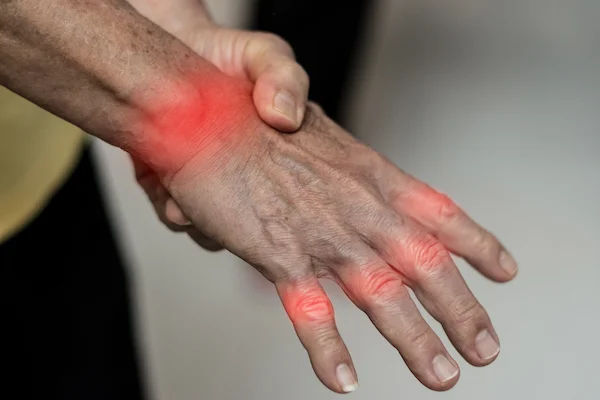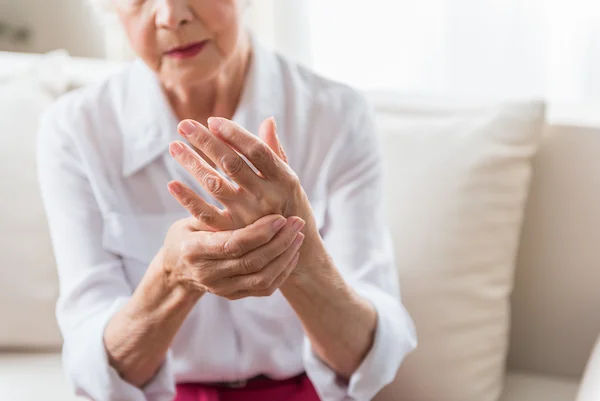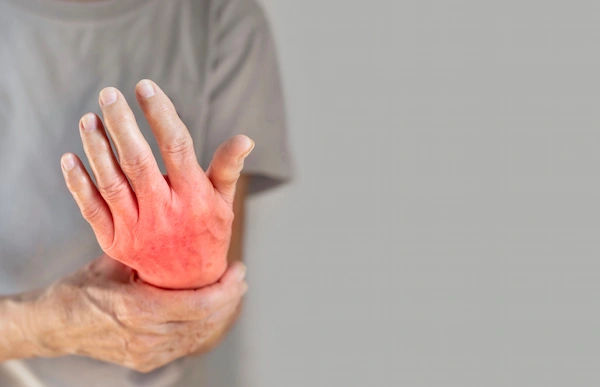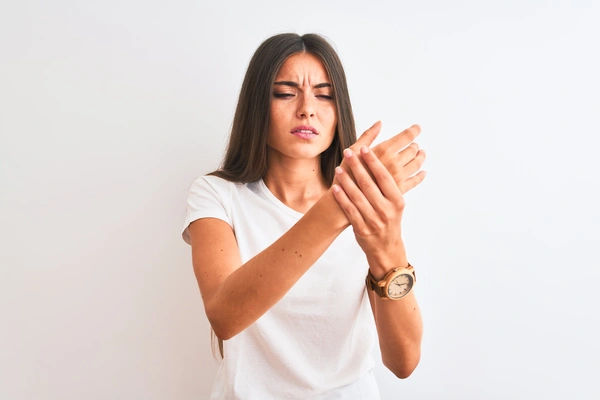Knuckle Cracking and Arthritis: Myth vs. Reality
Learn the truth about knuckle cracking and its link to arthritis, separating myths from facts to understand its impact on joint health.


Introduction
For generations, a familiar sound has echoed in classrooms, offices, and living rooms: the pop, crack, or crunch of someone cracking their knuckles. And just as familiar is the ensuing warning: "Stop that! You'll get arthritis!" This piece of well-intentioned advice has been passed down for decades, causing anxiety for many habitual crackers. But is there any scientific truth to this claim, or is it simply a long-standing medical myth? This article dives deep into the science behind the pop, exploring what rigorous research says about the link between knuckle cracking and arthritis. We'll separate the evidence-based facts from the old wives' tales, examine the real (though rare) risks involved, and help you understand when joint noises are a sign to consult a professional. Let's unravel the mystery of that satisfying crack once and for all.
What Actually Makes That Popping Sound?
The sound of a cracking knuckle isn't the sound of bones grinding together. Instead, it's a fascinating process involving joint physiology and physics.
The Science of Synovial Fluid and Cavitation
Each of your joints is surrounded by a capsule filled with a thick, slippery liquid called synovial fluid. This fluid acts as a lubricant and shock absorber, allowing for smooth, pain-free movement. This synovial fluid is saturated with dissolved gases, primarily nitrogen, oxygen, and carbon dioxide.
When you stretch or pull a joint to crack it, like by pulling your finger, you are expanding the joint capsule. This sudden expansion decreases the pressure inside the joint. According to the most widely accepted theory, this pressure change causes the dissolved gases to rapidly come out of solution, forming a bubble or cavity in a process known as cavitation. The "pop" or "crack" is the sound of that gas bubble collapsing.
Why You Have to Wait Before Cracking Again
You may have noticed that after you crack a specific knuckle, you can't crack it again immediately. This is because the gases need time to redissolve back into the synovial fluid. This period, known as the refractory period, typically lasts about 15-20 minutes. Until the gases fully dissolve again, you cannot recreate the cavitation event in that same joint.
Consult an Orthopaedician for the best advice
The Million-Dollar Question: Does Cracking Knuckles Cause Arthritis?
This is the core of the debate, and the answer, according to modern medical science, is a resounding no.
The Groundbreaking Self-Experiment of Dr. Donald Unger
The most famous evidence against the myth comes from a dedicated (and somewhat quirky) California physician named Dr. Donald Unger. To prove his mother and countless others wrong, he conducted a 50-year experiment on himself. For five decades, he cracked the knuckles on his left hand at least twice a day, while never cracking the knuckles on his right hand.
After 50 years, he compared the hands. The result? There were no signs of arthritis in either hand. He reported no pain, swelling, or difference in mobility between the two hands. His research, published in the journal Arthritis & Rheumatism in 1998, earned him the 2009 Ig Nobel Prize in Medicine, an award honoring achievements that "first make people laugh, and then make them think."
What Larger Scientific Studies Have Found
While Dr. Unger's experiment is a compelling anecdote, larger-scale studies have confirmed his findings. A notable study published in the Journal of the American Board of Family Medicine examined 215 people between the ages of 50 and 89. They compared the joint health of those who cracked their knuckles habitually versus those who did not. The study found no increased risk of hand arthritis among the knuckle crackers. The prevalence of arthritis was similar in both groups, linked instead to age, family history, and prior joint injuries.
If Not Arthritis, What Are the Real Risks of Knuckle Cracking?
Just because it doesn't cause arthritis doesn't mean it's entirely without consequence. Some potential downsides exist.
Potential for Soft Tissue Damage and Ligament Strain
Aggressive or improperly performed knuckle cracking can overstretch the ligaments that support the joints. Repeatedly stretching these ligaments beyond their normal range of motion could potentially lead to instability or soft tissue damage over time. This is why it's generally advised to avoid having others crack your joints for you, as they may apply force incorrectly.
The Impact on Grip Strength
Some smaller studies have suggested a possible correlation between long-term habitual cracking and reduced grip strength. One study found that chronic crackers had more hand swelling and lower grip strength than non-crackers. However, these studies are not conclusive, and the changes observed were often minor.
The Social Annoyance Factor
This is perhaps the most common "risk." The sound of knuckle cracking can be irritating or unpleasant to those around you. In a shared workspace or social setting, this habit might be more detrimental to your social standing than your physical health!
When Should You Be Concerned About Joint Popping?
Not all joint noises are benign cavitation. It's crucial to know the difference.
Popping Accompanied by Pain: A Major Red Flag
If your joint cracking is consistently accompanied by pain, swelling, stiffness, or a loss of mobility, it is no longer a harmless habit. Pain when cracking knuckles is a signal that something may be wrong. This could indicate an underlying injury, such as a torn ligament, damaged cartilage, or a loose piece of bone or cartilage within the joint.
Understanding the Difference: Cracking vs. Grinding (Crepitus)
A sharp, popping crack is typically cavitation. A continuous grinding, grating, or crunching sensation known as crepitus is different. This sound often indicates that cartilage surfaces have worn down and are rubbing together, which is a hallmark of osteoarthritis. If you experience this type of noise, especially with pain, it's important to get it evaluated. If symptoms like painful popping or grinding persist, consult a doctor online with Apollo24|7 for further evaluation.
How to Break the Habit (If You Want To)
For those who wish to stop, often for social reasons, a few strategies can help:
- Awareness: Notice the situations that trigger the habit (e.g., stress, boredom).
- Substitution: Find another, less disruptive fidgeting habit, like squeezing a stress ball or spinning a fidget ring.
- Occupying Your Hands: Keep your hands busy with tasks like typing, drawing, or knitting.
Conclusion
The long-held belief that cracking your knuckles will lead to arthritis has been thoroughly debunked by science. The evidence is clear: the habit does not cause the wear-and-tear damage of osteoarthritis or the inflammatory processes of rheumatoid arthritis. The popping sound is simply a harmless physiological event involving gas bubbles in your joint fluid. However, it's not a completely risk-free practice. Aggressive cracking can potentially lead to soft tissue issues or reduced grip strength, and the sound is certainly a nuisance to many. Most importantly, any joint noise that comes with pain, swelling, or a grinding sensation is a different matter entirely and should be checked by a medical professional. So, the next time you feel the urge to crack, you can do so without fear of arthritis but perhaps be mindful of your audience. If you have persistent joint pain or concerns about your joint health, it's always best to seek expert advice.
Consult an Orthopaedician for the best advice
Consult an Orthopaedician for the best advice

Dr Vikas P Birla
Orthopedics-Sports Medicine
13 Years • MBBS, DNB, MNAMS, Fellowship in Shoulder and Sports Injury
Delhi
Apollo Hospitals Indraprastha, Delhi

Dr. R Kapendra Mouli
Orthopaedician
14 Years • MBBS, MS, Ortho
Bengaluru
Apollo Medical Center, Marathahalli, Bengaluru

Dr. Rupam Chowdhury
Orthopaedician
10 Years • MBBS, DNB (Ortho.)
Kolkata
MCR SUPER SPECIALITY POLY CLINIC & PATHOLOGY, Kolkata

Dr. Shrinidhi I S
Orthopaedician
8 Years • MBBS, D Ortho, DNB(Ortho), MNAMS
Bangalore
Apollo Clinic Bellandur, Bangalore

Dr. Sudipta Saha
Orthopaedician
8 Years • MBBS,(D. Ortho)
Kolkata
VDC Clinic, Kolkata
Consult an Orthopaedician for the best advice

Dr Vikas P Birla
Orthopedics-Sports Medicine
13 Years • MBBS, DNB, MNAMS, Fellowship in Shoulder and Sports Injury
Delhi
Apollo Hospitals Indraprastha, Delhi

Dr. R Kapendra Mouli
Orthopaedician
14 Years • MBBS, MS, Ortho
Bengaluru
Apollo Medical Center, Marathahalli, Bengaluru

Dr. Rupam Chowdhury
Orthopaedician
10 Years • MBBS, DNB (Ortho.)
Kolkata
MCR SUPER SPECIALITY POLY CLINIC & PATHOLOGY, Kolkata

Dr. Shrinidhi I S
Orthopaedician
8 Years • MBBS, D Ortho, DNB(Ortho), MNAMS
Bangalore
Apollo Clinic Bellandur, Bangalore

Dr. Sudipta Saha
Orthopaedician
8 Years • MBBS,(D. Ortho)
Kolkata
VDC Clinic, Kolkata
More articles from Arthritis
Frequently Asked Questions
Why do some people's knuckles crack more easily than others?
Individual anatomy plays a role. People with more lax ligaments or larger joint spaces may find it easier to create the cavitation event that causes the pop. It's not an indicator of health or a future problem.
Can cracking other joints, like my neck or back, cause damage?
While the cavitation process is the same, these areas are more complex. Self-adjusting your neck, in particular, carries significant risk of damaging arteries or nerves. It's best to leave manipulation of the spine and neck to trained professionals like chiropractors or physical therapists.
Is it true that knuckle cracking can make your joints bigger?
There's no evidence that cracking itself enlarges joints. However, if the habit leads to chronic inflammation or swelling from ligament strain, it could potentially cause some enlargement over a very long period.
Why does cracking my knuckles feel good?
Stretching the joint capsule stimulates nerve endings and provides a sense of release. It can also temporarily increase the joint's range of motion. For many, it becomes a satisfying psychological habit to relieve stress or boredom.
I heard a loud pop during a fall and now my joint hurts. What should I do?
This is a completely different scenario. A traumatic pop followed by pain, swelling, or instability is a classic sign of a serious injury like a ligament tear (e.g., an ACL tear in the knee) or a fracture. You should seek immediate medical attention for an evaluation.




